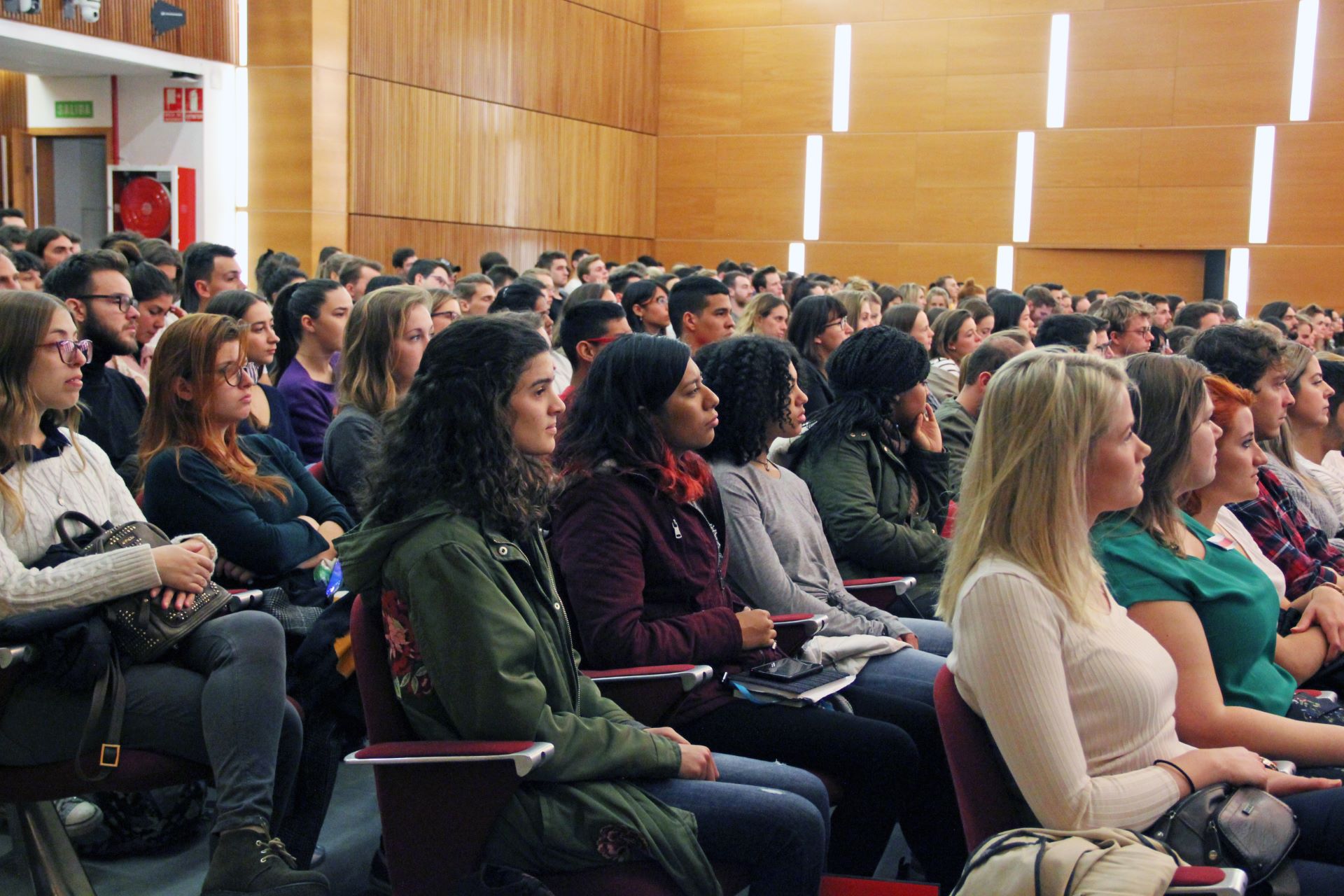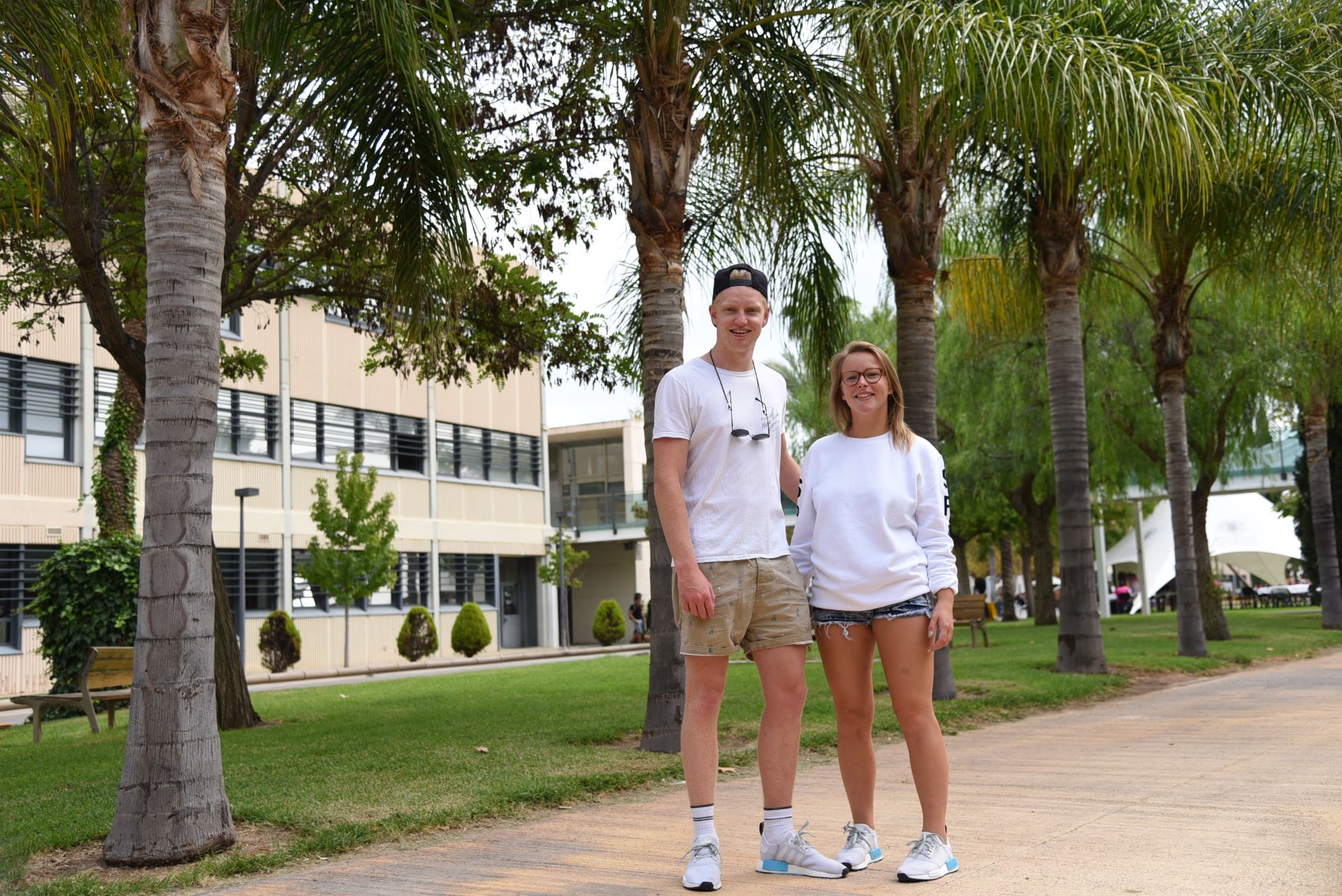
Degrees – International admission
Admission requirements
Access to bachelor’s degrees for international students
Access to any Spanish university degree for foreign international students is through UNEDasiss. There are several ways to access it, and depending on the university you choose and the autonomous community where it is located, the access system varies. Here we will describe the access to the universities of the Valencian Community, which is where the UPV is located.
First, you must have passed your home country’s baccalaureate or similar studies. Then, the procedure can follow two paths. If you come from countries within EU or countries with an agreement, you must formalise the accreditation. For the rest of the countries, for example, the countries of LATAM, you have to formalise the accreditation and the processes of legalisation and homologation. These procedures are carried out through the UNED and the General Registers of the diplomatic representations of Spain abroad or in the Electronic Headquarters.
Students who do not come from the Spanish education system do not have to take the university entrance exam (PAU). Still, but taking the Specific Competence Exams (PCE) is a must, and these will increase your marks and, therefore, your chances of getting into the degree of your choice.
Access to Valencian universities is more accessible than in other autonomous communities because while in most of them (Basque Country, Catalonia, Andalusia…) they ask you to take 6 subjects, in the Valencian Community you will only need 4. We recommend that at least 2 of these subjects have a weighting of 0.2 in the degree you choose, so that your grade is as high as possible. Check the UPV weighting table here.

Calendar
The pre-registration period is from mid-June to early July. Most degrees in Spain are 4 years, 60 credits each, up to 240 credits. Classes run from September to June, with only one annual call. Here you can access the UPV academic calendar.
Calendar for international students
As we have already mentioned, there are two ways to access the UPV for international students, one for members of the European Union or countries with reciprocity agreements and another for the rest, including most LATAM countries. In both cases it is important to start the procedures as soon as possible, as the processes can be delayed due to the difference in educational systems. In this calendar you can see the most important dates.
November
This is the time to decide which degree you want to study and at which university, as this will influence how you apply. In Spain, the admission process is different depending on the autonomous community where the university is located.
February
Certification and application to sit the 1st call of the Specific Competence Test (PCE). This procedure is carried out on the UNED website.
May
1st call for the Test of Specific Competence (PCE).
June
Pre-registration for the universities of the Valencian Community and enrolment at the UPV.
Accreditation and application for the 2nd call of the PCE at UNED
September
2nd call for the Test of Specific Competence (PCE
September
Start of the course in Spain
More information? Solve your doubts
Pre-registration and enrollment
Two steps to get to the UPV
Once you have completed your university entrance exams, you have to do your pre-registration. In the pre-registration, you can choose up to 20 degrees from different universities in the Valencian Community. Here you will have to select the degrees you are interested in, in order of preference, since you will be admitted to the first degree where a place is available according to your grade. Although the accreditation has yet to be decided, you must do the pre-registration within the deadline, from mid-June to early July. All that remains is to formalise your enrolment, for which we will send you a message with the date you can do it online.
How does the cut-off mark affect me?
The cut-off mark is obtained by the last student who entered last year. This mark depends on the number of places available and the demand for the degree and is not a mark imposed by the university. The cut-off marks of the previous year only serve as a reference, so you should prioritise your applications based on your preferences and not on the cut-off mark.
How many places are there in each degree programme?
Not all degrees have the same number of places, and knowing how many sites are offered is interesting because it gives you an idea of the options you have to get in. The degree that offers 375 places differs from the one that offers 50. Here you have detailed information about the places offered by the UPV.
Pre-register for both bachelor’s and master’s degrees
The newest thing we have to make your studies easier: you register once and forget about it! The Successive Academic Programmes (PARS) are different academic programmes that you choose during pre-registration, allowing you to do the bachelor’s and master’s degrees consecutively.
In addition, they allow you to start the master’s degree even if you have 30 credits left from your undergraduate degree.
What happens if you change your mind? Not much, the PARS pre-registration does not oblige you to do anything.
Important, if a degree is within the PARS, it is recommended that you pre-enrol in both options, as you will find it in the PARS version and in the version that does not belong to this academic programme.

What is a credit?
In the European Higher Education Area (EHEA) system to which Spain belongs, degrees are equivalent in credits. A credit (ECTS) is the way to punctuate each course’s dedication and demand. Each credit equals 25 – 30 hours of dedication. One academic subject is equivalent to 4 or 6 credits, and 60 ECTS credits are equivalent to an entire academic year. Generally, a degree has 240 credits, the equivalent of 4 years. The credit system is essential because it guarantees the recognition of qualifications and mobility between degrees and countries and tells you the degree’s price, as it is expressed in terms of cost per credit.
More questions?
Bachelor’s degrees at the UPV
The UPV offers more than 40 degrees and double degrees. We focus on technical degrees, but you can also find degrees related to the arts, sciences and humanities.
Here you can discover our range of degrees. Every year we hold an online Open Day, where faculty and students talk about UPV degrees and where prospective students can ask any questions they may have. In this link, you can find the recordings of the latest edition and thus learn more about its contents.
Is it compulsory to take the UNED PCE?
As mentioned, international students do not have to take the PAU, as their access route is through UNEDassis. After the relevant procedures, the possibility of taking Specific Competency Tests (PCE) is voluntary.
If your baccalaureate mark is high enough, you can enter the degree courses to which it gives you access, but you must bear in mind that the maximum mark you can achieve with your baccalaureate, if you come from EU countries or countries with an agreement is a 10 and if you come from countries without an agreement a 6, while the Minimum GPA required for admission in Spain is a 14. This is why, although the PCE are not compulsory, it is the best way to improve your mark and thus have more chances of accessing the degree course of your choice.
What are the qualifying degrees?
Qualifying degrees are access to regulated professions. These professions require a specific academic qualification, a Bachelor’s or Master’s degree. The UPV offers teaching qualifications for the regulated professions of engineering and architecture.
How much does it cost to study at UPV?
The UPV is a public university, its prices are subsidised by the administration and are defined by the Generalitat Valenciana, the autonomous government of the Valencian Community.
In the academic year 24/25 a levelling of fees for international students has been carried out, whereby the price per credit (ECTS) will be multiplied by 1.5. From year 25/26 onwards, it has to be multiplied by 2. This regularisation will affect non-resident students, excluding nationals of EU Member States and those who are under the EU regime. However, you can see that the UPV’s prices for international students are significantly lower than those of other universities in Madrid or Barcelona.
The Spanish system is governed by the European Credit Transfer and Accumulation System (ECTS), known as credits, and all degrees have their equivalence in credits. In general, the price per credit for a degree is €17.34 for the first enrolment, and an academic year consists of 60 credits, so the estimated cost per year would be €1,024. Secretarial and certification fees are less than €200.
For a Master’s degree, the average price per credit is €35.3. You can calculate the total cost of a Master’s course by multiplying it by the number of credits and adding €200-300 for other administrative fees. An academic year is 60 credits, so the total cost of a 90-credit master’s degree would be around €3,200.
These prices are public and change annually, so each year, they are published in a decree of the Generalitat Valenciana, which you can find on our website.
Scholarships and grants
Most of the scholarships offered to study at the UPV at a national and regional level can be used by European students. However, many countries outside the European Union grant students to study at European universities.
The UPV manages grants for international students through different cooperation programmes. You can see them on the website of the Vice-rectorate for Internationalisation and Communication.
You can apply for national grants in your home country; for example, if you are a student in the Dominican Republic (MESCYT grants), Peru (PRONABEC grants), Mexico (CONACYT grants), Ecuador (SENESCYT grants) or Argentina (BecAr programme).
SEPIE, or the European Union, also facilitate access to education in Europe with specific programmes. In addition, some private entities (such as Fundación Carolina) also offer scholarships for international students.
Duration
Most bachelor’s degrees in the Spanish system last four years. At UPV, only the five-year Bachelor’s Degree in Fundamentals of Architecture. Academic years are measured in ECTS credits.
Changing university
If you want to transfer your transcript to continue your studies at the UPV, you must have at least 30 credits recognised in the degree you are applying for admission to. You have two calls to start this procedure, at the end of February and the beginning of July.
Check all the information on this link of Admission to a degree.
Can I enrol in a Bachelor’s degree and then change to another one?
Yes, you only must take into account two factors. You must have passed 30 credits of common courses and check that seats are available for continuing studies in the new Bachelor’s degree you are interested in. This system also works for transfers from international universities.
The “proximity” of the Bachelor’s degrees is essential. In other words, it will be easier for you to switch between Bachelor’s degrees in the same field of knowledge from the same school or faculty or the same university. For example, switching from Electrical Engineering to Aerospace Engineering will be easier as both belong to the same branch, Industrial and Aeronautical, and the same school, ETSID. Other aspects, such as the academic record, will be considered apart from the credits.
As for the number of seats available, bear in mind that not all Bachelor’s degrees offer this option, and the number is variable. Last year, the UPV offered 515 seats of this type.
The application period runs from the end of February to the beginning of March. If seats are still available, a second deadline opens in early July.
Here you can find all the information on file transfers.
May I study at other universities?
When you study at UPV, it is as if you were studying at more than 1,000 universities in 92 countries. You can spend part of your studies at these universities through international exchange programmes such as Erasmus, Promoe, Sicue or ENHANCE. All these possibilities are available through the Office of International Exchange Programmes (OPII).
Language of tuition and language requirement
The language is chosen at the time of enrolment. Classes are taught in Spanish, most of them, Valencian and English.
Given that teaching is in Spanish, and in order to ensure that students are able to follow all training activities, students from non-Spanish-speaking countries will be required to have a level equivalent to B2 in Spanish.
The list of certificates accepted by the Universitat Politècnica de València for the accreditation of the requirement of knowledge of Spanish is the one that appears in the updated table of certificates recognised by ACLES (Association of Language Centres for Higher Education in Spain).
You can consult the list of degrees with language requirement at the Comunitat Valenciana.
Access for Colombian students
The governments of Colombia and Spain have agreed to facilitate access to Spanish universities for Colombian students. In a reciprocal sense, Spanish students can also study in Colombia.
As a result of this agreement, it will not be necessary to validate the high school diploma to study at a Spanish university; it will only be required to apostille the high school diploma and the Saber 11 certificate to the Colombian Ministry of Foreign Affairs and present these documents to the UNED, which is the Spanish body responsible for issuing the accreditation for access.
The digital accreditation issued by the UNED allows you to participate in the admission process to most universities in Spain. This accreditation converts the Saber 11 grade to its equivalent in the Spanish system. You must have got a minimum of 200 points in the Saber 11 test to gain access. The maximum grade obtained with the equivalence is 10 points in the EBAU.
The recognition of access requirements does not guarantee automatic admission to Spanish universities since, in some high-demand degrees, you may need a grade higher than 10 to gain access, up to a maximum grade of 14. In this case, it is advisable to improve your grades by taking the UNED PCE exams.
More information? Solve your doubts
Information updated in March 2025